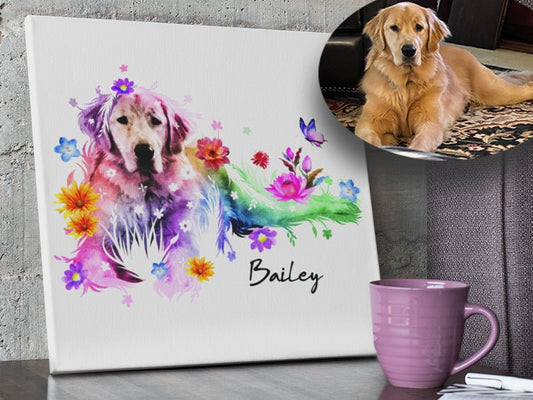How to Support Someone Who Lost a Dog: Practical and Emotional Guidance
When someone close to you loses their dog, it can be hard to know what to say or do. For many, a dog is more than just a pet—it’s a family member and a source of unconditional love.
The grief that follows such a loss is real and profound.
If you’re looking for ways to support a friend or loved one during this time, this guide will help you offer comfort and care with empathy and understanding.
Understanding the Grief of Losing a Dog
Why Losing a Dog Feels Like Losing Family
The bond between humans and their dogs is unique and deeply emotional. Dogs are loyal companions who provide constant love and support. To those who have lost a dog, it’s not just the absence of a pet but the loss of a cherished relationship. As one grieving pet owner shared, "They were always there for me, no matter what. Losing them feels like losing a piece of myself."
Recognizing the Stages of Grief
Grief doesn’t follow a strict timeline, and everyone experiences it differently. Some may go through denial, anger, bargaining, depression, and acceptance, while others may move back and forth between emotions. The most important thing is to allow your loved one to grieve in their own way and time without judgment or pressure to move on.
The Role of Support During Pet Loss
Meaningful gestures and compassionate listening can make a significant difference. Knowing someone cares and acknowledges their pain can help ease the weight of their grief. Even small acts of kindness can be incredibly comforting during such a difficult time.
Practical Ways to Offer Support
Be Present and Listen
One of the most powerful things you can do is simply be there. Let them talk about their dog, share memories, and express their emotions. Avoid minimizing their pain by saying things like, "It was just a dog." Instead, offer supportive words like, "I know how much they meant to you."
Offer Help With Daily Tasks
Grief can make even the simplest tasks feel overwhelming. Offering to help with errands, chores, or other responsibilities can provide relief. If their routines revolved around their dog, such as walking or feeding, ask how you can assist them during this transition.
Create a Meaningful Gesture
A thoughtful gesture can bring comfort and show your support. Consider:
-
Sending a sympathy card with a personal message.
-
Gifting a framed photo or a custom keepsake featuring their dog.
-
Planting a tree or flowers in their dog’s memory. For more ideas, visit "Memorial Ideas for Pets".
Emotional Support and Encouragement
Acknowledge Their Pain
It’s important to validate their feelings. You might say, "I know how much they meant to you, and I’m here for you." Sharing your own experiences with pet loss, if appropriate, can also help them feel less alone.
Respect Their Healing Process
Grief doesn’t have a timeline, and healing looks different for everyone. Avoid suggesting they replace their dog immediately or "move on." Instead, let them grieve at their own pace and offer reassurance that it’s okay to feel sad for as long as they need.
Suggest Resources for Comfort
If they’re open to it, recommend resources that might help them cope. Support groups or counselors specializing in pet loss can be invaluable. Sharing helpful articles, such as "Coping With the Loss of a Dog", can also provide guidance and comfort.
FAQs About Supporting Someone Who Lost a Dog
"What should I say to someone who lost their dog?" Express your sympathy with kind words: "I’m so sorry for your loss. [Dog’s name] was such a special part of your life."
"Should I avoid talking about their dog?" No, talking about their dog can bring comfort. Sharing memories or asking about their favorite moments shows that you care.
"How can I help them remember their dog?" Offer to create a memory box or photo album together. You might also suggest organizing a small memorial ceremony to honor their pet.
Conclusion:
Supporting someone who has lost a dog requires empathy, patience, and care.
By listening, offering practical help, and honoring their grief, you can make a meaningful difference.
Remember, even the smallest gestures of kindness can provide comfort during a time of great loss.
Your compassion will remind them that they are not alone in their pain.





